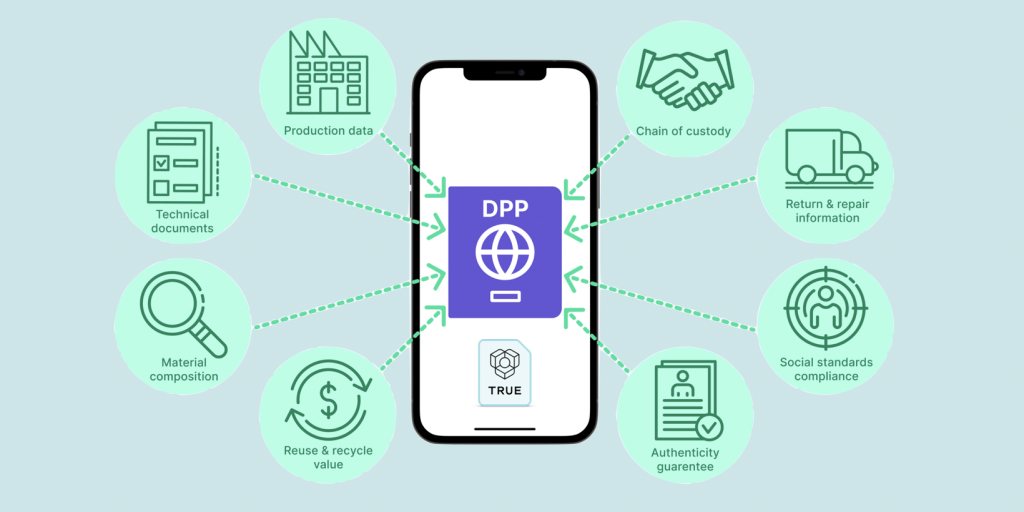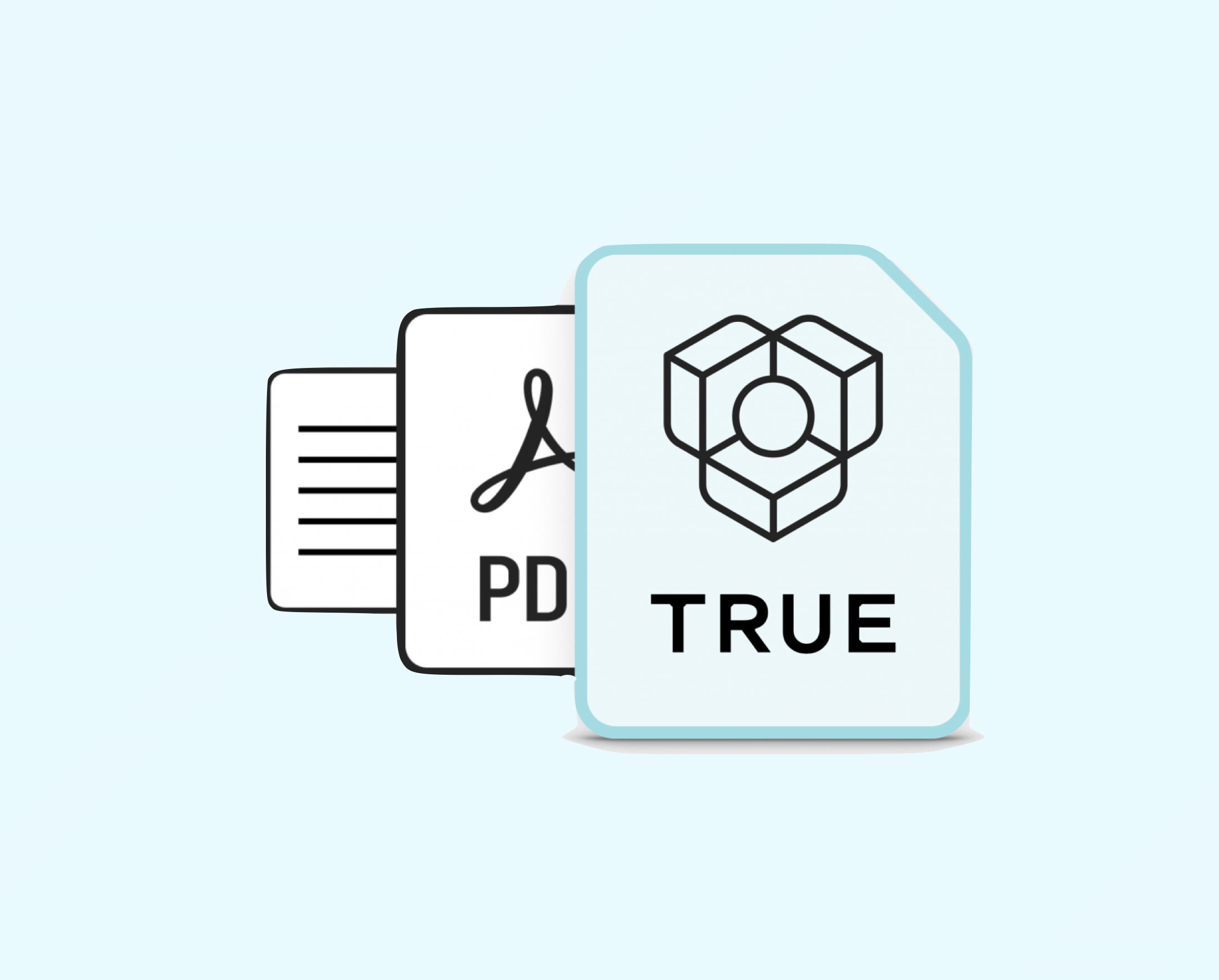Decades of discussions on sustainability are now being put into action with the European Union’s new push for complete product transparency: the Digital Product Passport.
For years, people, governments, and industry leaders have talked about moving away from the traditional product life cycle of make > use > dispose and toward a circular economy. EU’s upcoming Digital Product Passport law aims to create a digital twin for every product (SKU), promoting a cycle of reuse and repurpose instead of disposal and waste.
But what does this new law involve? And, more importantly, what does it mean for your business?
Similar to its travel-friendly counterpart used for humans, the digital product passport will be an essential document accompanying a product throughout its journey. Instead of a paper booklet, the DPP will be permanently attached to each product through an NFC chip, QR code, or RFID tag.
The data collection starts during the product’s design phase, recording the materials used, their sources, and where the product was assembled. From there, the DPP is continually updated to track sales, repairs, and replacements.
Throughout its life, anyone interacting with the product can scan the DPP to access all this vital information, promoting transparency in the product’s supply chain and supporting sustainable business models.

What Data is Stored in a Digital Product Passport?
While the EU is still defining the data requirements, some expected inclusions are:
- Basic product details: Name, make, model, batch number, manufacturing date, and warranty information.
- Material information: Origins of raw materials, suppliers involved, and component details.
- Ownership history: Past and current owners, particularly relevant for products that can be resold.
- Repair records: Overall repairability, specific repair events, and reasons.
- Sustainability metrics: Carbon footprint during manufacturing, distribution, and use.
Who Does the Digital Product Passport Affect?
The DPP will significantly impact brands and manufacturers by requiring a deep understanding of their product’s life cycle, from design to recycling.
Initially, many will need to rethink their processes, but the DPP will provide valuable insights into environmental impact, help achieve sustainability goals, and enable premium pricing for responsibly made products.
Additionally, the DPP benefits other stakeholders:
- Material suppliers: Rewarding transparency and safety.
- Repair professionals: Access to full repair history for better diagnosis.
- Recyclers: Detailed component information for efficient material recovery.
- Governments and public authorities: A new compliance standard for verification.
- Consumers: Empowered to make informed decisions and support sustainable practices.
Global Impact of the Digital Product Passport
While originating from the EU, the DPP’s influence will extend worldwide. Any product bought or sold in the European market must comply with relevant DPP regulations, making it a globally relevant standard, regardless of where it’s made or sold.

Where does TRUE come in?
TRUE has, since our inception in 2020 created ways for organizations to automatically issue fully customizable documentation which not only is correct, but also impossible to lose, destroyed or falsified (secured with blockchain). This makes us exceptionally well equipped to create any type of documentation you need for your organization, and we can even connect ownership to the products, which our technology already does for high-end watches, jewelry and art, for current clients.
Contact us at support @trueoriginal.com to schedule a demo or discuss your needs.





